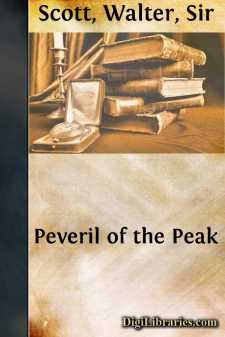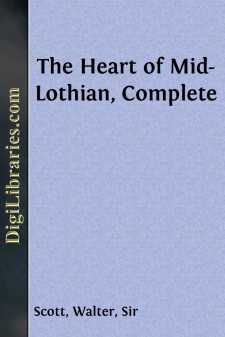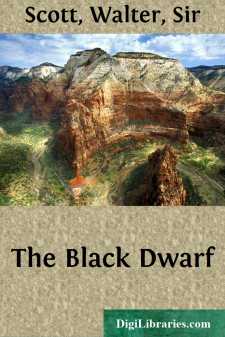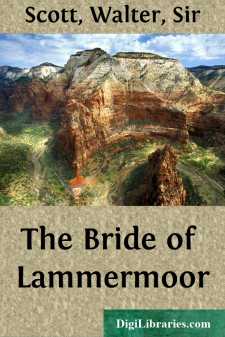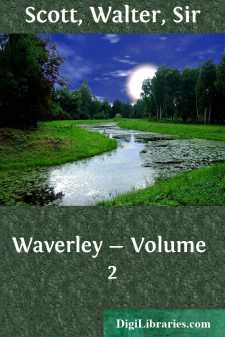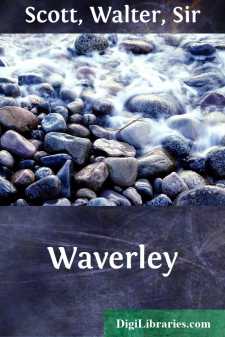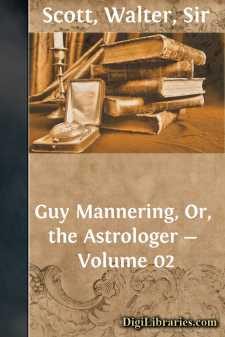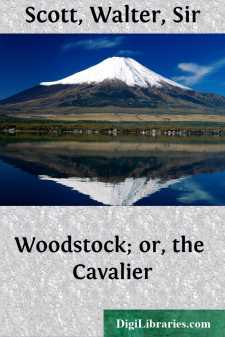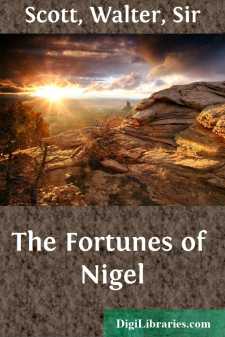Categories
- Antiques & Collectibles 13
- Architecture 36
- Art 48
- Bibles 22
- Biography & Autobiography 813
- Body, Mind & Spirit 142
- Business & Economics 28
- Children's Books 16
- Children's Fiction 13
- Computers 4
- Cooking 94
- Crafts & Hobbies 4
- Drama 346
- Education 46
- Family & Relationships 57
- Fiction 11829
- Games 19
- Gardening 17
- Health & Fitness 34
- History 1377
- House & Home 1
- Humor 147
- Juvenile Fiction 1873
- Juvenile Nonfiction 202
- Language Arts & Disciplines 88
- Law 16
- Literary Collections 686
- Literary Criticism 179
- Mathematics 13
- Medical 41
- Music 40
- Nature 179
- Non-Classifiable 1768
- Performing Arts 7
- Periodicals 1453
- Philosophy 64
- Photography 2
- Poetry 896
- Political Science 203
- Psychology 42
- Reference 154
- Religion 513
- Science 126
- Self-Help 84
- Social Science 81
- Sports & Recreation 34
- Study Aids 3
- Technology & Engineering 59
- Transportation 23
- Travel 463
- True Crime 29
Sort by:
by:
Walter Scott
CHAPTER I When civil dudgeon first grew high,And men fell out, they knew not why;When foul words, jealousies, and fears,Set folk together by the ears——BUTLER. William, the Conqueror of England, was, or supposed himself to be, the father of a certain William Peveril, who attended him to the battle of Hastings, and there distinguished himself. The liberal-minded monarch, who assumed in his charters...
more...
by:
Walter Scott
CHAPTER FIRST. How have I sinn'd, that this afflictionShould light so heavy on me? I have no more sons,And this no more mine own.—My grand curseHang o'er his head that thus transformed thee!—Travel? I'll send my horse to travel next.Monsieur Thomas. You have requested me, my dear friend, to bestow some of that leisure, with which Providence has blessed the decline of my life, in...
more...
by:
Walter Scott
CHAPTER FIRST. Isab.—Alas! what poor ability's in meTo do him good?Lucio.—Assay the power you have.Measure for Measure. When Mrs. Saddletree entered the apartment in which her guests had shrouded their misery, she found the window darkened. The feebleness which followed his long swoon had rendered it necessary to lay the old man in bed. The curtains were drawn around him, and Jeanie sate...
more...
by:
Walter Scott
INTRODUCTION. As I may, without vanity, presume that the name and official description prefixed to this Proem will secure it, from the sedate and reflecting part of mankind, to whom only I would be understood to address myself, such attention as is due to the sedulous instructor of youth, and the careful performer of my Sabbath duties, I will forbear to hold up a candle to the daylight, or to point out...
more...
by:
Walter Scott
INTRODUCTION TO THE BRIDE OF LAMMERMOOR THE Author, on a former occasion, declined giving the real source from which he drew the tragic subject of this history, because, though occurring at a distant period, it might possibly be unpleasing to the feelings of the descendants of the parties. But as he finds an account of the circumstances given in the Notes to Law's Memorials, by his ingenious...
more...
by:
Walter Scott
AN INCIDENT The dinner hour of Scotland Sixty Years Since was two o'clock. It was therefore about four o'clock of a delightful autumn afternoon that Mr. Gilfillan commenced his march, in hopes, although Stirling was eighteen miles distant, he might be able, by becoming a borrower of the night for an hour or two, to reach it that evening. He therefore put forth his strength, and marched...
more...
by:
Walter Scott
GENERAL PREFACE TO THE WAVERLEY NOVELS And must I ravel outMy weaved-up follies? Richard II, Act IV. Having undertaken to give an Introductory Account of the compositions which are here offered to the public, with Notes and Illustrations, the Author, under whose name they are now for the first time collected, feels that he has the delicate task of speaking...
more...
by:
Walter Scott
A man may see how this world goes with no eyes. Look with thine ears. See how yon justice rails upon yon simple thief. Hark in thine ear: Change places; and, handy-dandy, which is the justice, which is the thief? —King Lear. Among those who took the most lively interest in endeavouring to discover the person by whom young Charles Hazlewood had been waylaid and wounded was Gilbert Glossin, Esquire,...
more...
by:
Walter Scott
APPENDIX NO. I. THE WOODSTOCK SCUFFLE; or, Most dreadfull apparitions that were lately seene in the Mannor-house of Woodstock, neere Oxford, to the great terror and the wonderful amazement of all there that did behold them. It were a wonder if one unites,And not of wonders and strange sights;For ev'ry where such things affrightsPoore people, That men are ev'n at their wits' end;God...
more...
by:
Walter Scott
INTRODUCTION But why should lordlings all our praise engross? Rise, honest man, and sing the Man of Ross. Pope Having, in the tale of the Heart of Mid-Lothian, succeeded in some degree in awakening an interest in behalf of one devoid of those accomplishments which belong to a heroine almost by right, I was next tempted to choose a hero upon the same unpromising plan; and as worth of character,...
more...


